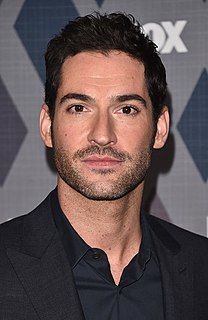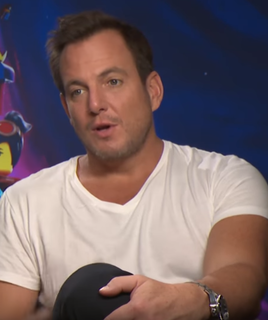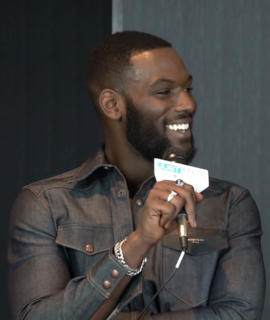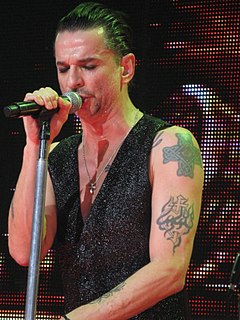A Quote by Tom Ellis
There's something really charming about a character that is fundamentally flawed and does some pretty despicable things, but yet you still kind of love him.
Related Quotes
There are some things fundamentally off about the stance of the book. And maybe that's okay; maybe every book is flawed, and great books, as flawed as they might be, articulate a moral argument that the reader then carries forward. The critique to this model is, of course, to ask: Should a book be ever so perfect that you come out of it with complete moral agreement that can be sustained?
One of my jobs as an actor, regardless of who I play - even if I'm playing a despicable character - is to make people think that that character could exist, that he's real, and the way to do that is to make him believable. He doesn't have to be likable or charming, but he just has to be believable. That is someone who I could see on a bus. That is someone who I could walk past in the street.
We like to think of industrialization as being despicable. I don't really know what to make of it. There’s something terribly brittle about it. I suppose I would still prefer to sit under a tree with a picnic basket rather than under a gas pump, but signs and comic strips are interesting as subject matter. There are certain things that are usable, forceful, and vital about commercial art. We're using those things – but we're not really advocating stupidity, international teenagerism, and terrorism.
[on River Phoenix] I would love to see what kind of choices he would be making now if he was still around, some of the characters that he would have played. I mean, to me he was like a rock star, you know, he had it all: he had the looks, he had a great name, he had an attitude, an energy, an excitement about him. He was instinctively like a, he was a rebel, you know? He was kind of Bob Dylan to me, at times, and he had a lot to say. And I've never seen too many interviews by him, but the ones that I saw were pretty electric, pretty... he was switched on, definitely.
[Ralph Angel] was really about figuring out the humanity aspect of the character and not really paying attention to certain things like him being incarcerated or him being a father and showing that type of love and putting something before you, despite me not having kids in real life. He's vulnerable, ambitious and alive.
Love is patient, love is kind, and is not jealous; love does not brag and is not arrogant, does not act unbecomingly; it does not seek its own [will], is not provoked, does not take into account a wrong suffered, does not rejoice in unrighteousness, but rejoices with the truth; bears all things, believes all things, hopes all things, endures all things.
I loved something I made up, something that's just as dead as Melly is. I made a pretty suit of clothes and fell in love with it. And when Ashley came riding along, so handsome, so different, I put that suit on him and made him wear it whether it fitted him or not. And I wouldn't see what he really was. I kept on loving the pretty clothes—and not him at all.
I get along really well with Lars [von Trier] but definitely during our first meetings I was feeling him out and he definitely says some things that are inappropriate and then you kind of get his sense of humour. I really enjoy him. He's one of my favourite people I've met now. So, he's pretty great.



































